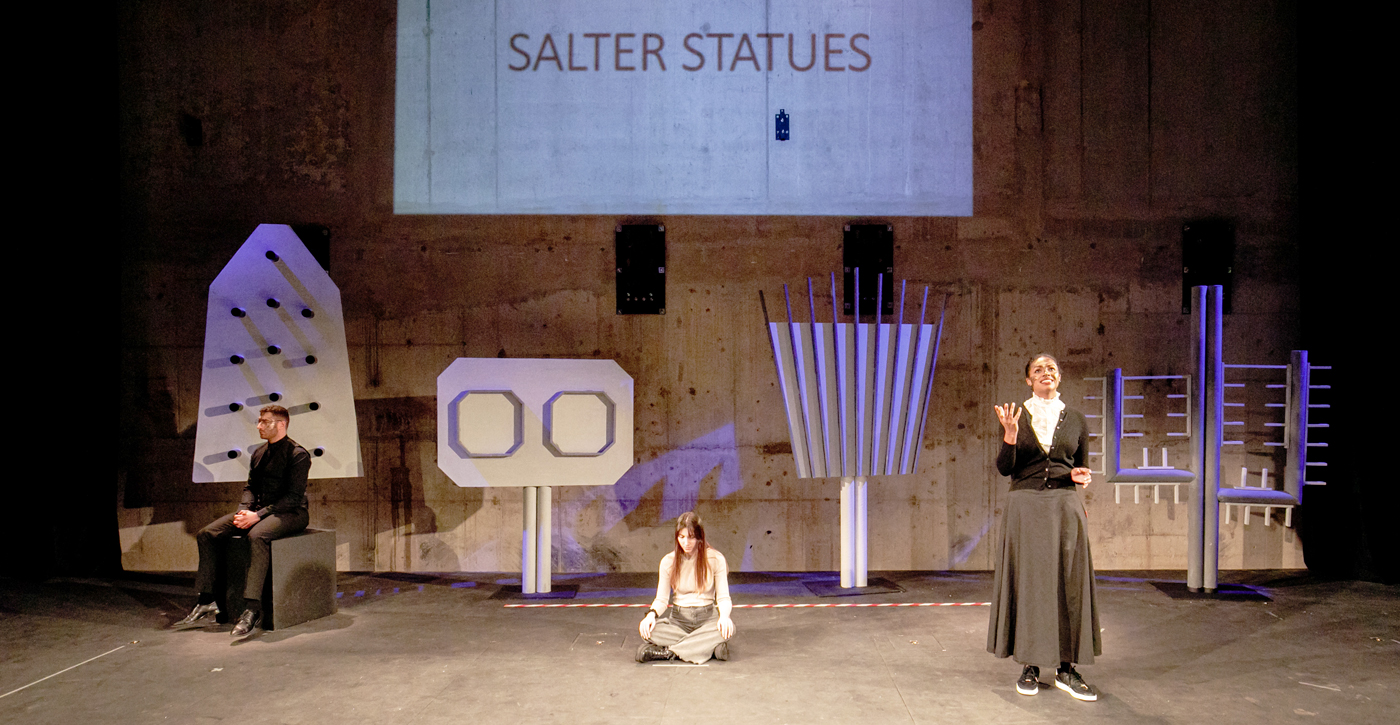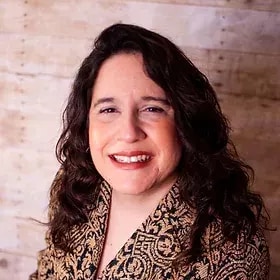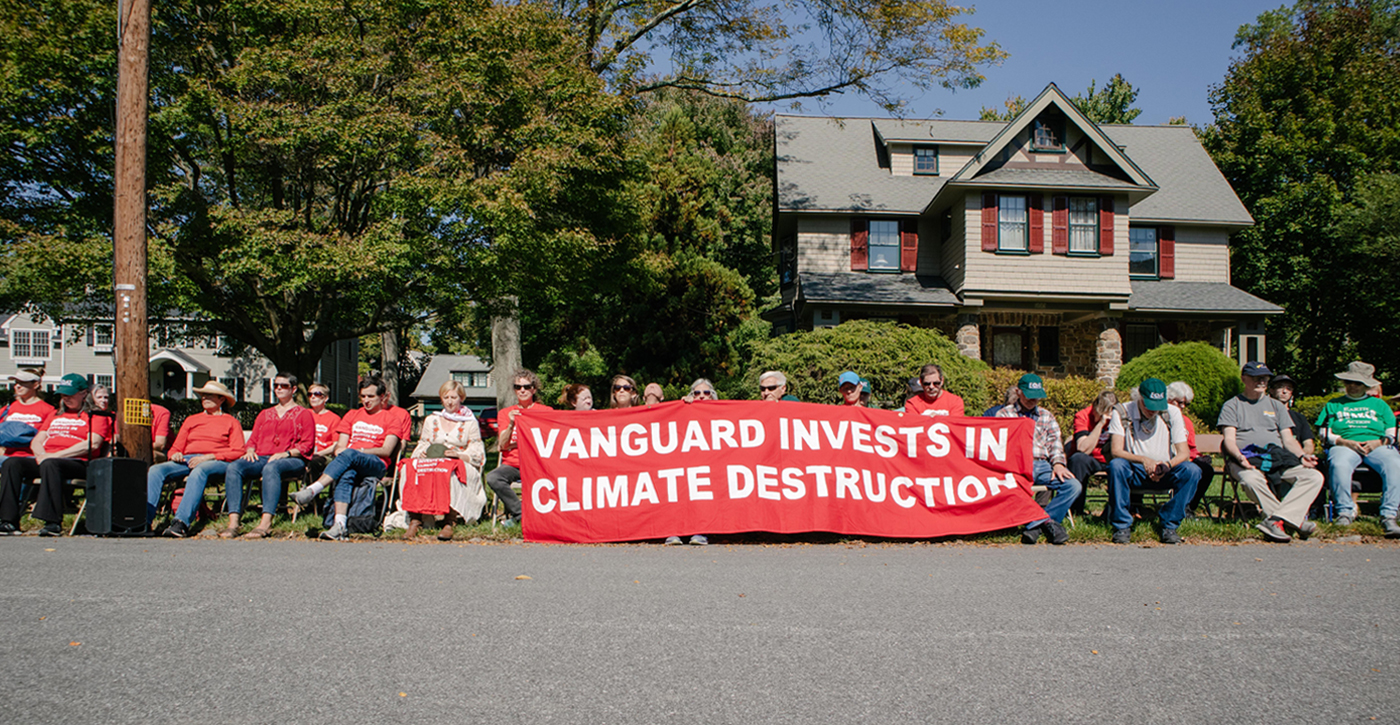The Bermondsey Revolution, a new play about the contributions of British Quaker reformers and pacifists Ada and Alfred Salter, premiered on January 26 at Southwark Playhouse in London. The futuristic theater performance blends fact and fiction. The play is set 100 years from now, in a post-climate-change future, and offers a view of the present from that vantage point, said playwright John Whelan, artistic director of People’s Company, which is based at the playhouse. At one point in the production, there is a recounting of events that took place in 2025, when a spike in global temperatures drove people worldwide to plant trees to sequester the carbon dioxide that generated climate change. The planet-wide initiative drew inspiration from the Salters’ real-life early-twentieth-century planting of 9,000 trees in Bermondsey, then an impoverished borough of London. Ada Salter primarily drove the planting project, which her Quaker commitment to equality motivated.
In the play, green technology students from London’s Compass School visit a museum where they learn about the global carbon capture program inspired by the Salters’ Beautification Committee, which planted the trees. The Compass School is a real secondary education academy that sits on the site of the school the Salters’ daughter, Joyce, attended before she died of scarlet fever at age eight. In real life, there are statues of Ada, Alfred, and Joyce Salter on the bank of the River Thames in London. In the play, the statues have been retrofitted with personality chips, and pupils can watch them interact in a holodeck-type space, according to Whelan. A holodeck is a fictional appliance that relies on computer programs and light beams to create three-dimensional images. The holographic display gives the Salters another chance to be a family with their departed daughter while affording the students an opportunity to learn about their lives and work.
Whelan based the play on local oral histories of the Salters, a biography of Ada Salter by British historian Graham Taylor, and a book about Alfred Salter’s life by the late politician Fenner Brockway. Many residents of South London still revere the Salters for their contributions to the former borough of Bermondsey, which was a slum when they lived there at the turn of the twentieth century, said Taylor, author of Ada Salter: Pioneer of Ethical Socialism.
Ada Salter grew up Methodist in the British countryside. She moved to London and volunteered at the Methodist-run Bermondsey Settlement, where she led clubs and lessons for mostly girls and young women who wanted to learn clerical skills so they could leave dangerous industrial jobs. Ada also organized fundraising concerts in which the young people sang, according to Taylor. Alfred volunteered at the settlement house as well, and the two met there. Raised Methodist, Alfred Salter turned to atheism in reaction to the dehumanizing conditions of the slums. The pair attended Deptford Meeting together in southeast London after finding religious common ground with Friends.
The couple married and perpetually revitalized each other’s ethical, political, and spiritual energy. “It was a really dynamic relationship,” Whelan said.
Starting in 1909, Ada Salter served as a borough council member and became mayor of Bermondsey—the first female in London to hold such a position—in 1922. She developed affordable social housing in consultation with Bermondsey residents.
Alfred Salter excelled in medical school and was poised to attain national recognition for his work. Instead, he chose to work as a local physician who offered free medical care to the impoverished residents of Bermondsey. The clinics he established were precursors to Britain’s National Health Service. He served on the councils of Bermondsey and London and represented the borough as a member of Parliament.
Staunch adherents to the peace testimony, the Salters publicly opposed World War I. They remained pacifists even when pro-military mobs threw rocks at their house and set fire to a church in which they were meeting, Whelan said. Despite their commitment to furthering women’s rights, Ada and Alfred Salter did not support the subset of suffragists who were committing arson, planting bombs, breaking windows, and kicking police officers, Taylor said. At the 1915 International Socialist Women’s Conference, Ada Salter maintained her commitment to nonviolence when she vehemently opposed Vladimir Lenin’s proposed armed revolution, according to Taylor. Lenin led the 1917 Bolshevik Revolution in Russia and became the first head of state of the Soviet Union.
“If you had an ethical end, you couldn’t contaminate it with an evil means,” Taylor said of Ada Salter’s objection to Lenin’s call to arms.
The play, which featured 21 local actors, ran for one weekend only and seating was sold out. The playhouse hosted a January 28 post-performance discussion with Whelan and the cast. The performance culminated a year of special events in honor of the Salter centenary, which celebrated the couple’s life and work with new tree plantings, a concert, community bike rides, and more.
Update 3/16/2023: English Heritage unveiled a plaque to mark Ada Salter’s home in Southwark on March 8 to coincide with International Women’s Day, as reported in The Friend.














Comments on Friendsjournal.org may be used in the Forum of the print magazine and may be edited for length and clarity.